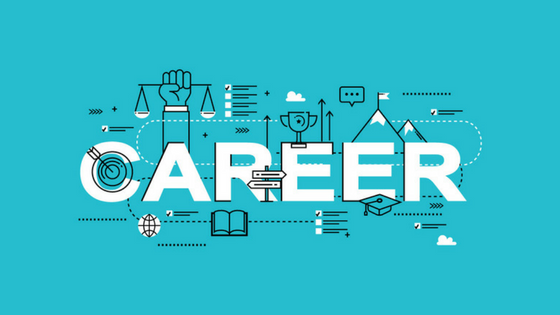Choosing a career is one of the most important decisions you will make in life. It’s about so much more than deciding what you will do to make a living.
While some people are lucky enough to just know what they want to do and end up in satisfying careers without giving it much thought but unfortunately most of us are not. Many people don’t put enough effort into choosing occupations or pick them for the wrong reasons. Some choose careers as they are secure or pay well but then also we find people who are relatively unhappy. The best way to make sure that you do not face the same situation all you need to do is to take a well-thought out decision.
Career planning is not the spur of the moment decision it is an on -going process that can help you manage your learning and development. You can initiate this four step planning process at any point of time whether at school; at college; an adult adding on skills or an adult in the process of changing job or career.
Thus career planning is the continuous process that also involves thinking about your interests, values, skills and preferences; exploring the life, work and learning options available to you; ensuring that your work fits with your personal circumstances; continuously fine-tuning your work and learning plans to help you manage the changes in your life and the world of work.
Choosing the right Career
So you can revisit and make use of 4 step process all the way through your career. These 4 steps of career planning are –
Step 1: Knowing yourself
The first step is thinking about where you are now, where you want to be and how you’re going to get there. Once you have thought about where you are at now and where you want to be, you can work on getting to know your skills, interests and values and it can be done asking yourself the following questions:
- Where you are at now?
- Where do you want to be?
- What do you want out of a job or career?
- What do you like to do?
- What are your strengths?
- What is important to you?
Once you get the answers of all these questions you will have a clearer idea of your work or learning goal and your individual preferences. You can compile this information about yourself as your ‘wish list’ and use it in in Step 2. Your personal preferences are very useful in helping you choose the best option for you at this point of time.
Step 2: Finding out
The second step is about exploring the occupations and learning areas that interest you. Once you have inkling of your occupational inclinations you can examine the specific skills and qualifications required for those occupations. All you need to do now is
- Explore occupations that interest you and ask yourself how do your skills and interests match up with the occupations chosen by you?
- Where are the gaps?
- What options/skills do you have to follow or qualify for your preferred occupations?
At the end of this step you will have a list of preferred occupations or learning options.
Step 3: Making decisions
The third step involves equating your options, zeroing down your choices and thinking about what suits you finest at this juncture. You need to ask yourself:
- What are your work/training options?
- How do they match with your skills, interests and values?
- How do they fit with your current situation and responsibilities?
- What are the advantages and disadvantages of each option?
- What will help and what will hinder you and what can you do about it?
After you have narrowed down your options and have an idea of what you need to do the only thing left is help working towards achieving your goals.
Step 4: Taking action
The last step is putting your plan into action Use all you have learnt about your skills, interests and values together with the information you have gathered about the world of work to create your plan. Now you need to ask the following set of questions to yourself:
- What actions/steps will help me achieve my work, training and career goals?
- Where can I get help?
- Who will support me?
- Decide which step is relevant for you right now and start from there.
While selecting the right career for yourselves you choose it with a lot of deliberations thus you must avoid the following mistakes-
- Listening to people who tell you that you should, or should not, do something
- Following in someone else’s footsteps
- Ignoring who you are as your personality type, interests, values and aptitude make you better suited for some occupations than others. These traits are intrinsic, which means you can’t change them. If you don’t take them into account when selecting a career, there is an excellent chance you will wind up in an occupation that is unsuitable for you.
- Not looking beyond a “Best Careers” list when it comes to selecting a career. However, making a decision based solely on one of best career lists is a terrible idea. Even an occupation with a great outlook can be a bad fit, so you have to scratch below the surface to find out whether you and a career are a good match.
Thus career is a profession that one pursues after acquiring skills and it can become enjoyable only if we follow what we are good at and what we love to do that is following one’s passion. We should think of passion as the starting point, undertake deeper personality tests but refrain ourselves from focusing on standardised test scores. Thus the right career choice depends on factors-skills, values, constraints, ambition, opportunities and personality. Hope you find the best career for yourself after going through the article.









Be the first one to comment on this story.